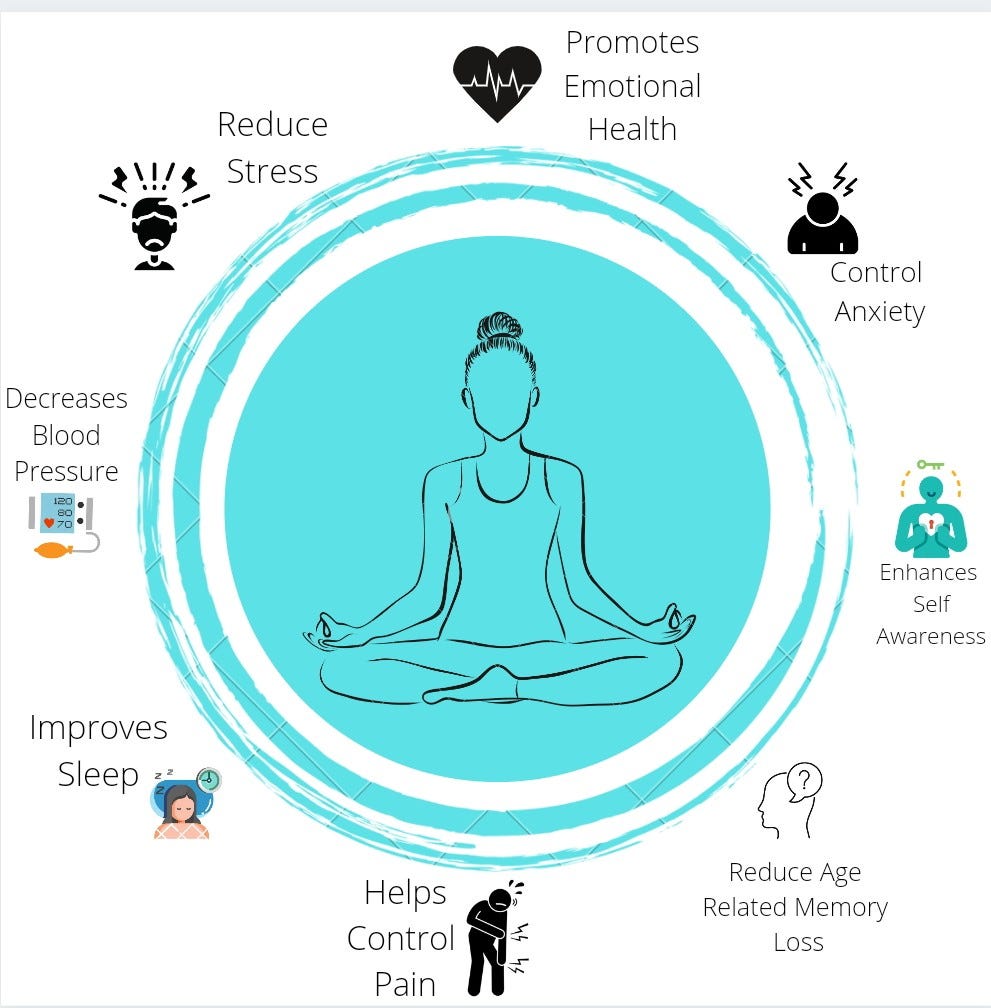In today’s bustling, ever-connected world, taking a moment to quiet the mind can often feel like a luxury. However, what if this pause wasn’t just a break but a profound tool for transformation? Enter meditation, an ancient practice now supported by modern science, proving it’s much more than just a fad or a fleeting trend. Below, we explore the numerous benefits of meditation for our mind, body, and spirit.
1. Stress Reduction Perhaps one of the most well-documented benefits of meditation is its ability to reduce stress. Chronic stress can result in inflammation, contributing to conditions like hypertension, depression, and insomnia. Meditation helps decrease levels of the stress hormone cortisol, leading to a calmer mind and a healthier body.
2. Improved Concentration and Attention Regular meditation practitioners often report heightened attention and increased concentration spans. The practice trains the mind to focus on the present, allowing for better performance in tasks and sharper attention to details.
3. Enhanced Emotional Well-being Meditation often leads to an increased awareness of self and a deeper understanding of one’s emotional world. This awareness can foster a better mood, higher self-esteem, and a more positive outlook on life.
4. Better Sleep Those who meditate regularly tend to find it easier to fall asleep and enjoy a deeper, more restorative sleep. Meditation relaxes the nervous system, setting the stage for a restful night.
5. Reduced Symptoms of Anxiety Meditation fosters a sense of present-moment awareness, which can break the cycle of rumination that often fuels anxiety. Over time, with consistent practice, many find their baseline levels of anxiety decrease.
6. Encourages Mindfulness in Daily Life Mindfulness, or the act of being fully present in the current moment, is a cornerstone of many meditation practices. This mindfulness can spill over into everyday activities, allowing one to be more engaged, attentive, and appreciative of daily experiences.
7. Supports Addiction Recovery Meditation strengthens self-control and increases awareness of triggers for addictive behaviors. Many rehabilitation centers are now integrating meditation as a key tool for recovery.
8. Enhances Self-Awareness Some meditation practices are designed to foster a deeper understanding of oneself. This self-reflection can lead to transformative insights and a clearer sense of purpose.
9. Can Decrease Blood Pressure The deep relaxation associated with meditation can lead to improved blood vessel function and reduced strain on the heart, thereby decreasing blood pressure.
10. Fosters a Sense of Connection Group meditation or mindfulness practices can nurture feelings of connection, fostering community, and decreasing feelings of loneliness.
In conclusion, while the act of meditation might seem simple, its effects are profoundly transformative. Whether you’re drawn to meditation for its physical, psychological, or spiritual benefits, there’s no doubt that carving out a few minutes each day can lead to a more balanced, harmonious life. If you haven’t given meditation a try, now might be the perfect moment to start. Your future self will undoubtedly thank you.


